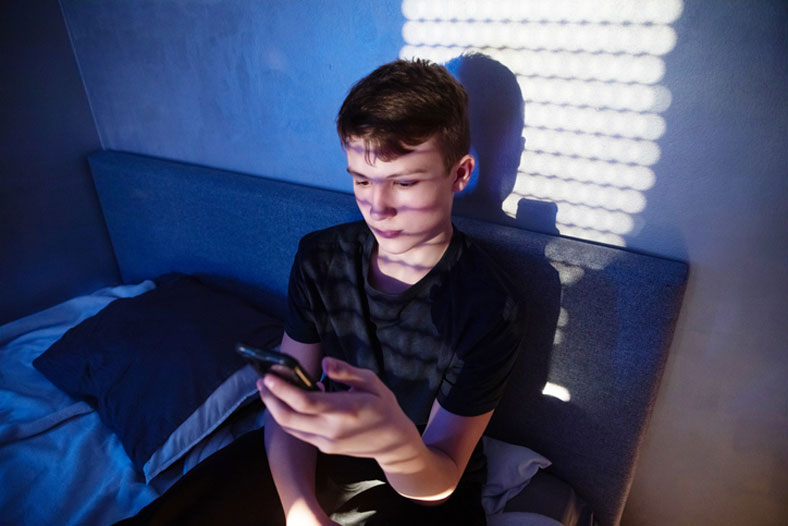It’s only natural for parents to be concerned that their child will be a victim of bullying. What’s less common – and just as important – is for parents to stay on guard to make sure their child is not the one doing the bullying. After all, for all of those who have been bullied, there are bullies, and for these young people parental influence and intervention can make all the difference.
But what do you do if you have a child who is bullying others? The truth is, it can be hard to know how to help a child who is lashing out at others, and it can even harder to identify in our current era of cyberbullying.
If you are a parent asking, “Is my child a bully?,” this is the guide for you. We look at how bullying affects children, statistics on the rates of bullying among young people today, what causes a child to become a bully, and what you can do if your child is the bully.

The State of Bullying in Schools Today
Rates of reported bullying are alarmingly high. A recent report by the National Center for Education Statistics (part of the U.S. Department of Education) found that one in five students reported having been bullied. This included incidents of verbal harassment (such as being made fun of, insulted, or called names), physical confrontations (including being shoved, tripped, or spit on), and incidents of intentional exclusion.
The Effects of Bullying
For obvious reasons, incidents of bullying can be harmful to young people not only in the short term but also in the long term, leading in some cases to sustained struggles with depression and anxiety.
Sadly, the largest number of reported incidents of bullying are for reasons related to physical appearance, race, gender, sexual orientation, and disability. Even when they only occur in passing, such incidents can be scarring for young people, with an impact that lasts far beyond the schoolyard.
Indeed, bullying has been shown to have dramatic effects on victims, including feelings of intense loneliness and alienation and lowered levels of achievement in school and extracurriculars. The federal organization StopBullying reports that those who are bullied during school are more likely to experience academic decline and exhibit higher rates of truancy and dropping out. At their most extreme, these decisions can be serious enough to permanently alter the course of a student’s life
In fact, bullying has even been shown to cause physical health problems: a study in Pediatrics, the journal of the American Academy of Pediatrics, finds that students who are bullied report symptoms of stomachaches and headaches twice as often as those who have not reported being bullied.
Cyberbullying
Beyond the types of bullying that parents might recognize from their own experiences in childhood and adolescence, young people today are faced with the new frontier of cyberbullying, a phenomenon that has been escalating since the Internet transformed our ways of engaging one another. According to the federal organization StopBullying, cyberbullying is “bullying that takes place over digital devices like cell phones, computers, and tablets.”
As hard as it can be to stop in-person cases of bullying, it’s even more challenging to figure out how to stop incidents of cyberbullying. This is in part because cyberbullying often happens in digital contexts that parents, teachers, and counselors do not monitor or in some cases even have access to, meaning cases can go unknown for long periods of time.
Stopping Cyberbullying as a Parent: How to Identify the Signs
Though it can be extremely difficult for parents and teachers to spot incidents of cyberbullying happening in real time, experts have identified a few important warning signs that cyberbullying is taking place based on young people’s use of their devices. This can be a stealthy way for parents to get a sense of how their children are socializing.
Some of the major device-related warning signs of cyberbullying include the following:
- Change in amount of phone use. This could mean a child is using their phone significantly less frequently or significantly more frequently than usual
- Hiding devices when parents or others are near
- Showing extreme engagement with what is happening on their device, exhibiting intense emotional responses and ignoring surroundings
- Frequently deleting and restarting social media accounts
These behaviors apply both to students who are victims of cyberbullying and students engaging in cyberbullying, and can be one of the first signs to parents that some form of intervention or discussion is needed.
What Causes a Child to Become a Bully?
If you’ve observed behavior from your child that has you asking, “Is my child a bully?,” fear not – this doesn’t reflect who your child is as a person, and it doesn’t make you a bad parent. There are many reasons why a child might engage in bullying behavior that don’t have to do with the content of their character or their family’s values.
So what causes a child to become a bully? Reasons include the following:
- Imitating others. Sometimes bullying is part of a school’s classroom culture, and your child might be copying behaviors they’ve witnessed from others. This can even mean that your child may have previously been bullied themselves, so it’s worth broaching the subject with them. In any case, speaking to your children about when they witness bullying, how they feel about it, and how to avoid behaving like a bully can be game-changing for kids who are acting out.
- Pushing boundaries. Some children push the boundaries of their peers and adults to to see how far they can go. This is when consequences can be important, setting parameters for what is and isn’t acceptable. In fact, many children who like to provoke others in fact are seeking the reassurance that rules and regulations provide, meaning it is helpful to them to see what isn’t allowed.
- Lack of awareness about differences. Sometimes young people engage in bullying behavior without understanding the depth of how their words and actions might affect people. This is especially true for issues of difference, whether in regards to race, gender, sexual orientation, or religion. As a parent, it’s important to educate your child about why bullying others around those topics can be so harmful.
- Lack of attention. Some students bully their peers to try to get attention from adults, and in fact sometimes are responding to feelings of not being seen in their home lives. As a parent, this is a sign that you may need to carve out more time to make sure your child feels heard.
- Siblings. If you have several children, keep an eye on how they treat one another, especially when they think you aren’t watching. Bullying can have a ripple effect: if one of your children witnesses bullying at school and replicates it toward their sibling, the sibling can go on to bully others around them. Ensuring that your children treat each other kindly will reinforce that behavior in the outside world.
These are just a few examples of what causes a child to become a bully.

What to Do When Your Child is the Bully
When thinking of solving the issue of bullying, we tend to focus on the experience of bullying victims. This is for good reason, as they often have immediate and long-term needs that need the attention of parents, teachers, and counselors. However, it’s also imperative that those looking to confront the issue of bullying look to the needs of kids who are bullies as well, as they are often experiencing inner turmoil that is expressing itself as hostile behavior toward others.
If you’re wondering, “Is my child a bully?” and you see that the answer is yes, it can be hard to know what to do next. On the one hand, as a parent, it’s imperative to make it clear to your child that behaving in a way that is abusive or hostile to others is unacceptable and will have significant consequences for them. On the other, simply penalizing children for bullying doesn’t necessarily root out the underlying issues and feelings that caused bullying in the first place.
There are ways that parents can enforce a zero-tolerance policy about bullying while continuing to create a supportive environment for their child to address their mental health needs. For more resources and approaches to helping children who have been bullying others, read on.
Supportive Actions
Bullies are still young people, and though they may behave in ways that warrant disciplinary consequences, it’s important that they also receive help that is supportive and empathetic to their needs. From family and friends, it’s important that they still feel loved and cared for even if they have behaved badly. Oftentimes those who bully feel misunderstood, judged, and excluded themselves, and harsh punishment and condemnation from authority figures can only increase that isolation. The compassionate intervention of authority figures is a meaningful way of helping to combat the feelings of alienation, anger, and malice that leads some young people to lash out against others.
Indeed, providing supportive and corrective resources for students who are bullies can make a world of difference not only in changing their immediate behaviors but also in improving their long-term mental health as well. Studies have shown that students who bully others have a higher likelihood of engaging in violent and risky behaviors in adolescence and beyond.
Anti-Bullying Resources for Parents
If you’re asking, “Is my child a bully?,” there are many resources to help you figure out what’s best. There are excellent government programs and nonprofits aimed at stopping bullying and helping parents, teachers, and counselors figure out how to detect it in the first place.
Some of the best anti-bullying campaigns include the US Department of Health and Human Services’ StopBullying, the educational campaign Stand for the Silent, and the anti-bullying organization Stomp Out Bullying. These are great resources to consult to learn how you can take control of the situation.

When to Involve a School Counselor or Social Worker
If your child is acting out and your own efforts to help them have not been working, it’s time to bring in a school counselor. This can also be a helpful way of monitoring how your child is behaving at school. If you are wondering “Is my child a bully?” and can’t confirm whether or not they are, this can also help you get to the bottom of the issue.
A school counselor is likely to ask about how your child is behaving at home and if they might have had recent experiences that would lead them to act out. They may also help flag certain behaviors for you to look out for. If you want more insight into how your child is socializing, what you can do to help them, and what causes a child to become a bully in the first place, bringing in a school counselor can be an excellent source of assistance and support.
Additional Resources for Prospective School Counselors
If you would like to make a difference in preventing bullying, becoming a school counselor is the career path for you. Now is a great time to become a school counselor, with the US Bureau of Labor Statistics reporting an anticipated job growth rate of 10% for school counselors by 2031. For more information about the degree requirements for school counselors, take a look at our Counseling Social Work Degrees Guide here.
For more information about careers helping with child mental health, take a look at our Social Work Career Guide and our Child Welfare Social Work Programs Guide.



